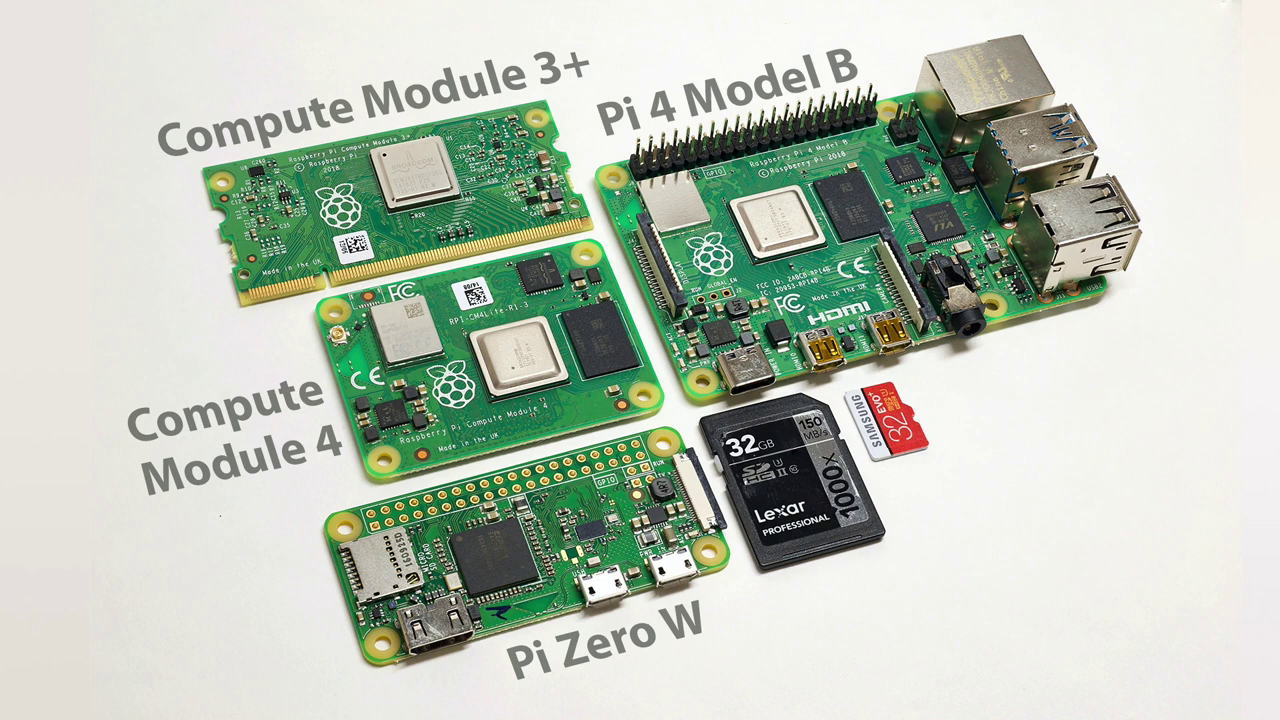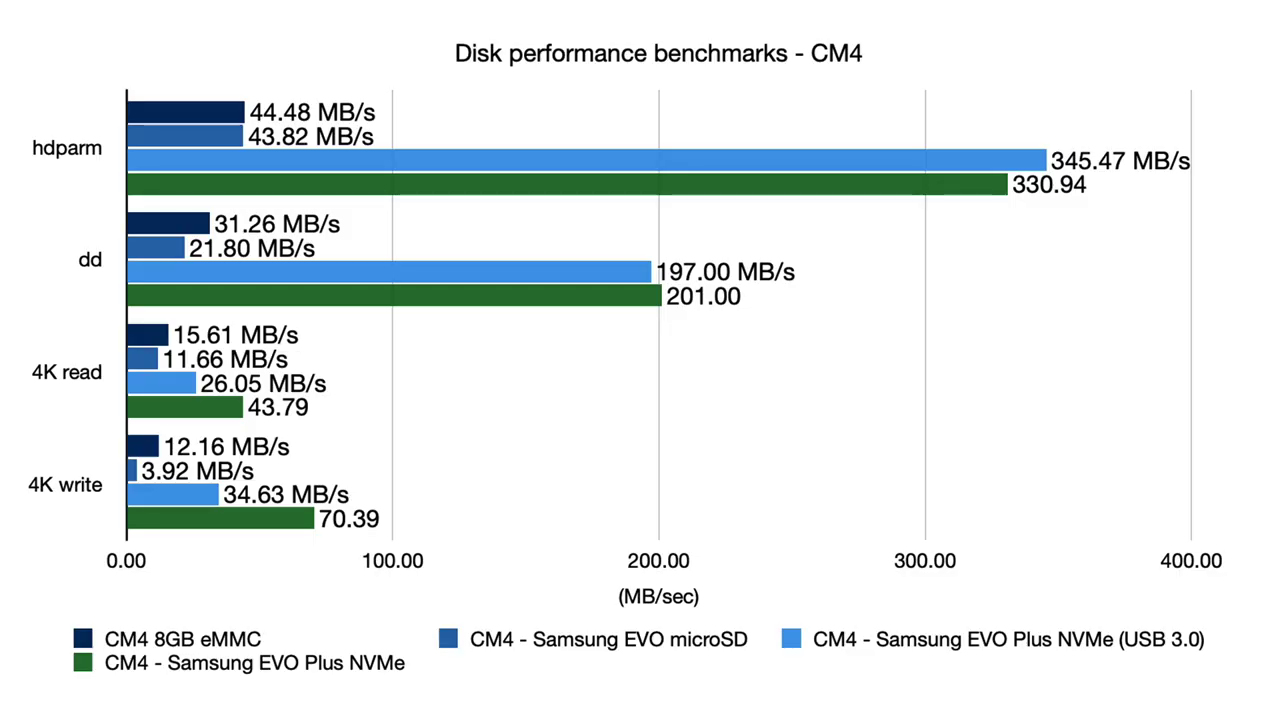Raspberry Pi Compute Module 4 Offers Fastest SSD Speeds Yet
YouTuber Jeff Geerling tested the new Pi with a PCIe SSD.

With the surprise announcement of the Raspberry Pi Compute Module 4, we've yet to get hands on with the board. YouTuber Jeff Geerling had early access to the board and has taken it through its paces, including USB and NVMe SSD speed tests.
Geerling has a history of testing Raspberry Pi. A few months ago he wrote a blog post covering USB Attached SCSI (UASP) compatible hard drives which showed great improvements in speed over conventional USB hard drives.
In his latest video, we learn more about how the new Compute Module 4 PCIe interface performs with PCIe to USB3 interface boards, some based upon the same VL805 controller found on the Raspberry Pi 4 while also testing a Syba USB 3.0 PCIe card.
Geerling takes his testing further by connecting an NVMe drive directly to the Compute Module 4 IO Board via an adapter. In his tests, he found that the Compute Module 4 offers the fastest disk I/O of any Raspberry Pi. With a Samsung 970 Evo Pro SSD hooked up via PCIe, Geerling got epic 4K read and write rates of 43.8 and 70.4 MBps, which were notably faster than the same drive connecting over USB 3.0. Overall sequential read / write rates between USB 3.0 and PCIe were nearly identical, however.
When speaking about SSD performance test ,Geerling says that "the ability to use USB or NVMe destroys the performance of onboard eMMC and SD cards". He later goes on to say that "sadly you cannot use NVMe as a boot volume, at least not yet."
If all this talk of PCIe interfaces has got you thinking "Can I attach a GPU to the Compute Module 4?" Geerling has already looked into this even finding a Zotac card which is hardware compatible with the PCIe Gen 2 slot on the Compute Module.
He is hoping to purchase a card and test it for a future video, but he is not optimistic about the chances of it working. What will work with the PCIe interface depends on Linux compatibility but there are SATA controllers, sound cards, Ethernet adaptors and even legacy interfaces that will work with the interface.
Get Tom's Hardware's best news and in-depth reviews, straight to your inbox.
The Compute Module 4 is the first Raspberry Pi with a UFL antenna connector for use with an external antenna. As the Compute Module 4 is meant to be embedded inside of product, there is a chance that there may be a metal shield blocking WiFi signals. Using the external antenna Jeff was able to get great performance after a little tweaking.
In a series of Phoronix benchmark tests designed to stress the CPU, Geerling found that the Compute Module 4 was around twice as fast as the previous Compute Module 3+.
The Compute Module 4 comes in up to 32 variants, some of which come with eMMC storage which of course Geerling has fully tested. In his tests, he found that the onboard eMMC was comparable to a fast micro SD card. It won't reach the lofty speeds of NVMe, but for most users the onboard eMMC is plenty fast.
For more details, see Geerling's full Raspberry Pi CM4 review and YouTube video.

Les Pounder is an associate editor at Tom's Hardware. He is a creative technologist and for seven years has created projects to educate and inspire minds both young and old. He has worked with the Raspberry Pi Foundation to write and deliver their teacher training program "Picademy".
